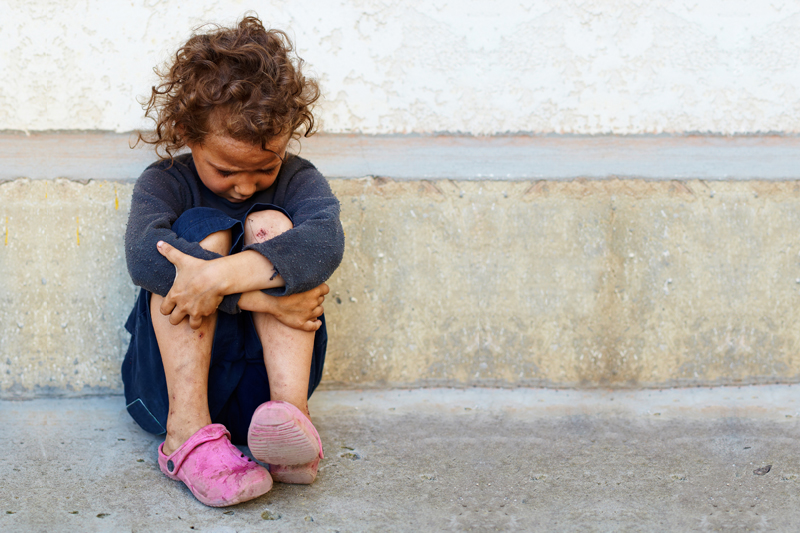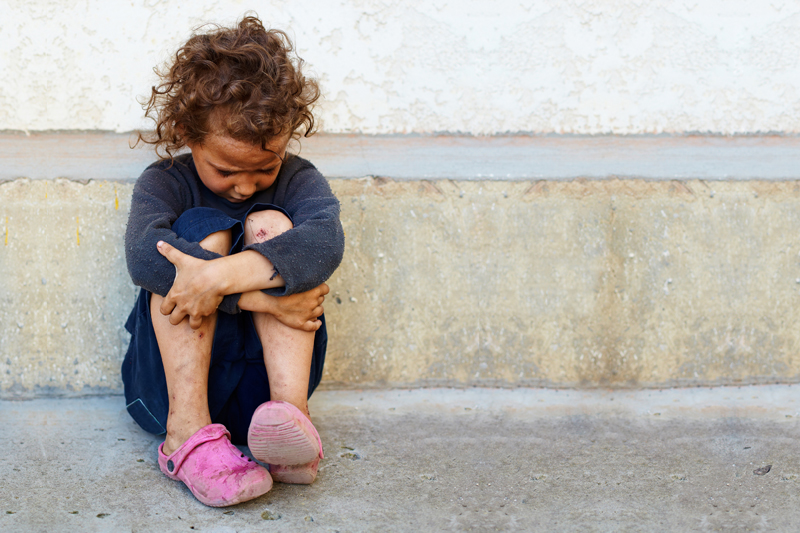He Was Nice To My Kids

The mother of a teenage girl recently molested by a neighbor spoke these words, “He was nice to my kids, he was nice to me, he'd take her to the library, I thought that was all that was going on." A person, especially a man, who is interested in hanging around a child and spends a lot of time alone with a child that is not his, should send up many red flags for the parent. This is regardless of the relationship of the adult to the child. It really does not matter whether it is a neighbor, coach, friend of the family, uncle, teacher, or pastor of a church.
Although most parents fear a stranger will hurt or abduct their child, in reality, someone the parent or child knows, and not necessarily a stranger violate most children. At this time of year, especially during the holidays, children see many people they may not know very well, while attending family or business parties or gatherings. The people, a child may not know well may include, cousins seen only once a year, a new boyfriend of an aunt, an uncle or step uncle who a child has met only once or twice before.
Parents tend to feel that family is safe, and this leads to a false sense of security. A parent may also feel a child is safer in a large family gathering at grandma’s house, rather than out on the town or home with a sitter, and therefore may not notice if the child is unaccounted for a brief period.
Large, chaotic, boisterous family gatherings are perfect places for children to find themselves cornered by a family member who uses the family gatherings to abuse them. Large houses, multiple level homes, and access to multiple bathrooms or bedrooms can leave many opportunities for situations, which are undesirable for a vulnerable child.
In the past children had to respect the elders, especially members of the family without question. Today parents must teach children to follow their instincts, and if someone asks or tells a child to do something they feel uncomfortable doing, the child should immediately run and tell a parent or safe grownup.
A safe way to explain this to children, especially smaller children, is that no one should touch him or her where his or her bathing suit covers his or her body. In addition, explain to children that he or she should never touch anyone’s body, where a bathing suit covers the body.
Make sure children and parents have agreed on two or three safe people for the child. The safe people are ones who the child could go to if they feel unsafe or are uncomfortable talking to mom or dad about something, or the adult could pick the child up from school in the event of an emergency. Beside the two or three safe adults, children should know never to go anywhere with anyone without first asking his or her parent, even if the parent knows the person.
Parents often have friends from the gym or from work over to visit, yet just because someone is a friend of mom or dad’s does not make them a safe person for the child. If that person asks a child to show them something in their room or to go outside to see something in the person’s car this would be a situation a child should ask the parent first. Friends of the parent are not safe people for a child.
Parents need to be careful on whom they invite into their home and around their children. As a parent, one is quick to tell a child whom he or she can and cannot hang out with, yet as a parent we are not often quite so fast to evaluate who we bring around our children, or who we allow access to our children unsupervised.
Fathers should be leery of driving home female babysitter’s, let mom drive them home, unless there is no other choice. Parents if possible allow your daughters to baby-sit at home when they first begin to watch children, and only allow them to baby-sit for people you know well.
Question anyone who continually asks or manages to manipulate time to be around your child no matter what the reason or how valid the reason may appear. Adults should be leery of spending time unsupervised with any child in today’s world.
Although most parents fear a stranger will hurt or abduct their child, in reality, someone the parent or child knows, and not necessarily a stranger violate most children. At this time of year, especially during the holidays, children see many people they may not know very well, while attending family or business parties or gatherings. The people, a child may not know well may include, cousins seen only once a year, a new boyfriend of an aunt, an uncle or step uncle who a child has met only once or twice before.
Parents tend to feel that family is safe, and this leads to a false sense of security. A parent may also feel a child is safer in a large family gathering at grandma’s house, rather than out on the town or home with a sitter, and therefore may not notice if the child is unaccounted for a brief period.
Large, chaotic, boisterous family gatherings are perfect places for children to find themselves cornered by a family member who uses the family gatherings to abuse them. Large houses, multiple level homes, and access to multiple bathrooms or bedrooms can leave many opportunities for situations, which are undesirable for a vulnerable child.
In the past children had to respect the elders, especially members of the family without question. Today parents must teach children to follow their instincts, and if someone asks or tells a child to do something they feel uncomfortable doing, the child should immediately run and tell a parent or safe grownup.
A safe way to explain this to children, especially smaller children, is that no one should touch him or her where his or her bathing suit covers his or her body. In addition, explain to children that he or she should never touch anyone’s body, where a bathing suit covers the body.
Make sure children and parents have agreed on two or three safe people for the child. The safe people are ones who the child could go to if they feel unsafe or are uncomfortable talking to mom or dad about something, or the adult could pick the child up from school in the event of an emergency. Beside the two or three safe adults, children should know never to go anywhere with anyone without first asking his or her parent, even if the parent knows the person.
Parents often have friends from the gym or from work over to visit, yet just because someone is a friend of mom or dad’s does not make them a safe person for the child. If that person asks a child to show them something in their room or to go outside to see something in the person’s car this would be a situation a child should ask the parent first. Friends of the parent are not safe people for a child.
Parents need to be careful on whom they invite into their home and around their children. As a parent, one is quick to tell a child whom he or she can and cannot hang out with, yet as a parent we are not often quite so fast to evaluate who we bring around our children, or who we allow access to our children unsupervised.
Fathers should be leery of driving home female babysitter’s, let mom drive them home, unless there is no other choice. Parents if possible allow your daughters to baby-sit at home when they first begin to watch children, and only allow them to baby-sit for people you know well.
Question anyone who continually asks or manages to manipulate time to be around your child no matter what the reason or how valid the reason may appear. Adults should be leery of spending time unsupervised with any child in today’s world.

Related Articles
Editor's Picks Articles
Top Ten Articles
Previous Features
Site Map
Content copyright © 2023 by Erika Lyn Smith. All rights reserved.
This content was written by Erika Lyn Smith. If you wish to use this content in any manner, you need written permission. Contact Erika Lyn Smith for details.



